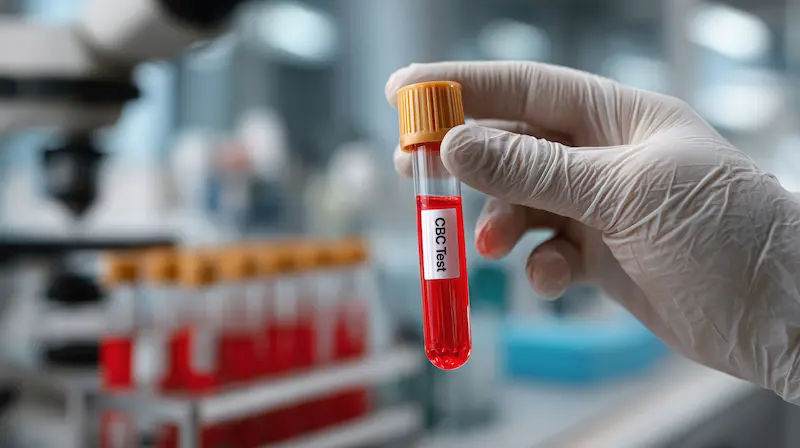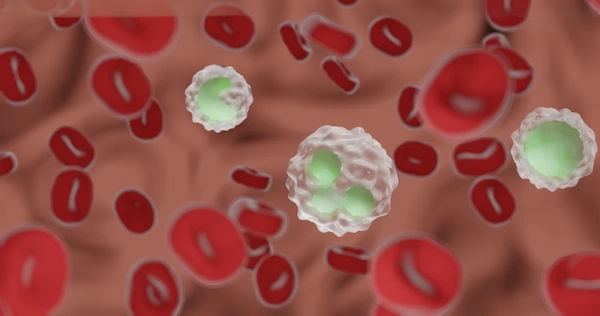Ways to Naturally Boost White Blood Cell Count
Discover effective natural ways to boost your white blood cell count and strengthen immunity. Learn about key nutrients, foods, and lifestyle habits that support immune system health.


White blood cells (WBCs) are the body’s defense soldiers, protecting us from infections and diseases. A low WBC count, also known as leukopenia, can weaken your immune system, making you more vulnerable to illnesses. The good news is that there are natural ways to boost your white blood cell count and strengthen your immunity.
In this article, we’ll explore simple, science-backed methods to increase your WBC count naturally through diet, lifestyle changes, and healthy habits.
Understanding White Blood Cells and Their Importance
White blood cells are a crucial part of your immune system. They help fight infections, viruses, and harmful bacteria. There are different types of WBCs, including:
- Neutrophils – Fight bacterial infections.
- Lymphocytes – Help with long-term immunity (B-cells and T-cells).
- Monocytes – Clean up dead cells and attack germs.
- Eosinophils & Basophils – Combat parasites and allergic reactions.
A normal WBC count ranges between 4,000 to 11,000 cells per microliter of blood. If your count is lower than this, you may experience frequent infections, fatigue, or slow healing.
Consult a Top Specialist
Natural Ways to Increase White Blood Cell Count
Below are the natural ways to increase white blood cell count,
1. Eat a Nutrient-Rich Diet
Your diet plays a huge role in maintaining a healthy WBC count. Include these immune-boosting foods:
Vitamin C-Rich Foods
- Citrus fruits (oranges, lemons, grapefruits)
- Bell peppers
- Broccoli
- Kiwi
- Strawberries
Why? Vitamin C enhances WBC production and function.
Zinc-Packed Foods
- Pumpkin seeds
- Chickpeas
- Lentils
- Nuts (cashews, almonds)
- Lean meats (chicken, turkey)
Why? Zinc helps in the development and function of immune cells.
Protein Sources
- Eggs
- Fish (salmon, tuna)
- Greek yogurt
- Beans
Why? Proteins provide amino acids essential for WBC production.
Antioxidant-Rich Foods
- Berries (blueberries, raspberries)
- Dark chocolate (in moderation)
- Green tea
Why? Antioxidants protect WBCs from damage.
Vitamin E & Selenium
- Sunflower seeds
- Spinach
- Brazil nuts
Why? These nutrients support immune cell activity.
2. Stay Hydrated
Water helps in the production of lymph, a fluid that carries WBCs throughout the body. Aim for 8-10 glasses of water daily.
3. Get Enough Sleep
Poor sleep weakens immunity. 7-9 hours of quality sleep helps your body regenerate WBCs effectively.
Tip: Maintain a regular sleep schedule and avoid screens before bedtime.
4. Exercise Regularly (But Don’t Overdo It)
Moderate exercise (like walking, yoga, or cycling) boosts circulation and immune function. However, excessive intense workouts can temporarily lower WBC count.
Recommended: 30 minutes of moderate activity, 5 days a week.
5. Manage Stress
Chronic stress releases cortisol, which suppresses WBC production. Try:
- Deep breathing exercises
- Meditation
- Spending time in nature
6. Avoid Smoking & Excessive Alcohol
Both smoking and heavy alcohol consumption weaken immunity and reduce WBC count.
7. Probiotics for Gut Health
A healthy gut supports immunity. Include:
- Yogurt (with live cultures)
- Kefir
- Fermented foods (kimchi, sauerkraut)
8. Herbs & Natural Supplements
Some herbs and supplements may help, but consult a doctor before taking them:
- Echinacea – May stimulate WBC production.
- Astragalus – Traditional herb for immune support.
- Garlic – Contains allicin, which boosts immunity.
When to See a Doctor?
If you experience:
- Frequent infections
- Unexplained fatigue
- Slow wound healing
- Persistent fever
It’s best to get a complete blood count (CBC) test to check your WBC levels.
Need help? You can book a consultation or lab test easily on Apollo 24|7 for expert advice.
Final Thoughts
Boosting your white blood cell count naturally involves a mix of a healthy diet, good sleep, stress management, and regular exercise. Small, consistent changes can make a big difference in strengthening your immune system.
Consult a Top Specialist
Consult a Top Specialist

Dr. Chaithra H
General Physician/ Internal Medicine Specialist
6 Years • MBBS, MD General Medicine, DNB General Medicine
Bangalore
Apollo 24|7 Clinic - Karnataka, Bangalore

Dr. Mohammed Kamran
General Practitioner
5 Years • MBBS, FIDM
Nashik
Apollo 24|7 Clinic - Maharashtra, Nashik

Dr. Jawwad Mohammed Kaleem
General Practitioner
4 Years • MBBS
Hyderabad
Apollo 24|7 Clinic, Hyderabad

Dr. Siri Nallapu
General Practitioner
5 Years • MBBS
Hyderabad
Apollo 24|7 Clinic, Hyderabad

Dr Divya Lekha Gunta
General Practitioner
10 Years • MBBS, MD (Pathology)
Visakhapatnam
Apollo 24|7 Clinic - Andhra Pradesh, Visakhapatnam
Consult a Top Specialist

Dr. Chaithra H
General Physician/ Internal Medicine Specialist
6 Years • MBBS, MD General Medicine, DNB General Medicine
Bangalore
Apollo 24|7 Clinic - Karnataka, Bangalore

Dr. Mohammed Kamran
General Practitioner
5 Years • MBBS, FIDM
Nashik
Apollo 24|7 Clinic - Maharashtra, Nashik

Dr. Jawwad Mohammed Kaleem
General Practitioner
4 Years • MBBS
Hyderabad
Apollo 24|7 Clinic, Hyderabad

Dr. Siri Nallapu
General Practitioner
5 Years • MBBS
Hyderabad
Apollo 24|7 Clinic, Hyderabad

Dr Divya Lekha Gunta
General Practitioner
10 Years • MBBS, MD (Pathology)
Visakhapatnam
Apollo 24|7 Clinic - Andhra Pradesh, Visakhapatnam



.webp)
